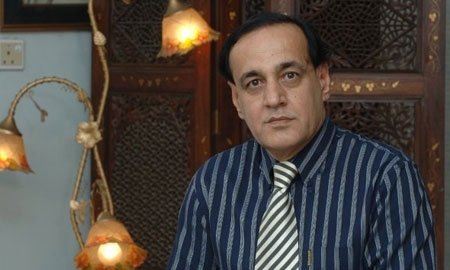The US Commission on International Religious Freedom, in its latest report, has expressed concern over the persecution of minorities in India. The Commission highlighted the BJP government’s fanatical policies against minorities, which have promoted religious hatred. India adopted a secular constitution shortly after independence in 1947. Millions of Indian Muslims, Christians, and members of other religious minorities tend to feel more insecure because of this phenomenon. The majority religious minority in India is its Muslim population, followed by Sikhs and Christians. The history of violence against religious minorities predates 1947, but under the Modi regime, the situation has gotten worse since 2014. India is a multi-faith democracy, with a majority Hindu population. According to census data, 79.80% of the population of India is Hindu, 14.23% Muslim, 2.30% Christian, 1.72% Sikh, 0.70% Buddhist, and 0.37% Jain. India’s constitution defines the nation as secular and protects freedom of religion or belief. However, there are concerns that religious minorities and other minority groups are suffering from persecution and discrimination. Human rights groups have criticized the Government led by the Bharatiya Janata Party (BJP) since 2014, for not doing enough to protect minorities. Human Rights Watch, in its 2019 report claimed, “The government failed to properly enforce Supreme Court directives to prevent and investigate mob attacks, often led by BJP supporters, on religious minorities and other vulnerable communities”. The BJP gained significant Hindu support after approving the Ram Mandir construction in Ayodhya, following the 1992 demolition of the Babri Masjid by Hindu extremist factions. After winning the elections of 2019, the BJP began construction of Ram Mandir, causing disappointment among Indian Muslims. The decision of the Indian Supreme Court in 2019, favoring the BJP intensified tensions. The abrogation of Article 370 in Kashmir in 2019, changing its constitutional status created unrest among Kashmiri Muslims. Hindu nationalist mobs attacked Kashmiris, leading to prolonged curfews and internet shutdowns causing immense hardship for the people. Indian parliament passed a Citizenship Amendment bill in 2019 offering amnesty to non-Muslim illegal immigrants. It allows Hindus, Sikhs, Jains, Buddhist, Parsis, and Christians to live or work in India for six years to be eligible for citizenship by naturalization. Critics argue that this is part of a BJP agenda to marginalize Muslims. Violent Hindu extremists have targeted the Christian community in India. There have been 525 attacks against Christians in the first eight months of 2023. In the state of Manipur, Hindu fundamentalists destroyed 249 churches in less than three days in May 2023. The government’s perceived inaction during violent incidents led to criticism and accusations of being a silent spectator. The violence displaced families and resulted in over 150 deaths, with many cases unreported. The Indian government, led by the Bharatiya Janata Party (BJP), has been saffronising India for years, promoting Hindu nationalism and promoting Hindutva-driven policies, disregarding human values. Hindutva views Islam as a threat and elevates Hinduism above all other religions, leading to increased majoritarianism, violence, and discrimination. Under Modi’s rule, the concept of “Hindu Rashtra” intensified tensions, with some Hindu nationalists envisioning India as a Hindu nation. Political scientist Christophe Jaffrelot argues that Hindu majoritarianism results from sustained efforts by fundamentalists and nonpartisan Hindus supporting nationalist ideas. Hindu majoritarianism in India has disrupted the country’s cultural and religious traditions and set 1.4 billion people astray. The BJP’s Hindutva policies have helped Modi win re-election in 2019 but also exploited ethnic and religious divides, resembling fascist leadership, and potentially gaining political influence. The BJP government faced international criticism for its handling of religious minorities, leading to protests against the 2020 farm laws from the Sikh community. The lack of government attention escalated the tensions, with activists facing arrests and blocked social media accounts.
| ReplyForward |








